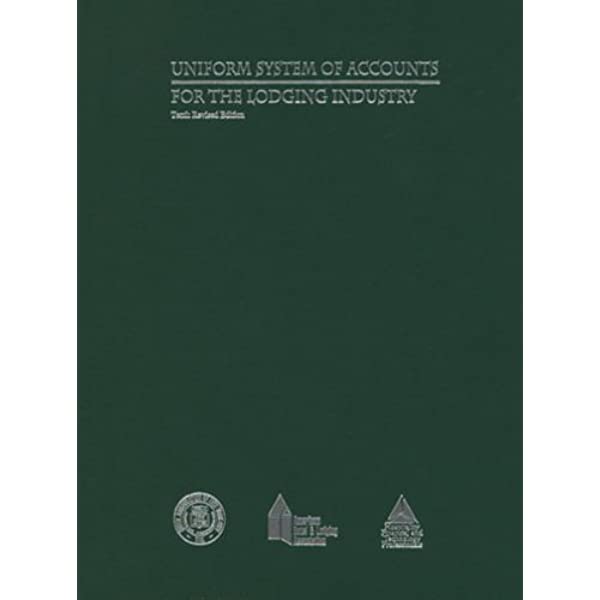This guide will show you everything you need to know about hotel budgets and how to create your hotel budget for 2025.

To create this, I worked with David Lund, “The Hotel Financial Coach,” who has 30+ years of operational and financial leadership experience, working with companies such as Hilton, Best Western, Fairmont Hotels and Resorts, Coast Hotels, Watermark, Pacific Hospitality Group, Atlific Hotels, and many others. David Santos, Chief Financial Officer at Savoy Hotel & Beach Club, also contributed.
In this guide, you’ll learn:
Let’s get started!
What is a hotel budget?
A hotel budget is a plan for how money will be generated and spent to achieve goals.
In Lund’s words, “A budget is a business plan focused on numbers.” He likens it to a map. “Before you go on a trip, you hopefully have a map of where you’re going so you can figure out your journey and changes you need to make to get to that final destination.”

Why do hotels create budgets?
Hotels create budgets to stay organized and align their teams on delivering financial results for owners and investors.
“The biggest challenge in the hotel business is when people aren’t organized enough to manage the operations and make changes they need to make to deliver the financial results that are possible,” Lund says.
The hotel budging process is essentially a goal-setting process, added Santos. “A budget is nothing other than a plan to achieve a goal. It shows your team where they need to go, and what they can get if they achieve that goal.”
In his experience, the process of creating a budget gives leadership a look into how the hotel is being managed. “If the budgeting process is painful and complex, it’s a sign that the hotel is not organized, that the information does not flow through the team, and that ultimately, money is being left on the table.”

Does every hotel need a budget?
While many hotels don’t have a budget today, even small, independent hotels can benefit from having one.
“I am working with an independent family-owned hotel that does $15 million in revenue each year,” Lund shared. “It’s always been run by intuition alone, and they’ve been successful. But now they realize that they need better reporting tools to zero in on how to be more profitable and how to take the business to the next level.”
When is hotel budget season?
Hotel budgets are typically started in August, with the first presentations due in early September.
“We typically aim to present the budget to a couple of different levels of management within the organization and then finally present it to ownership by November,” Lund said.

How do you create a hotel budget?
Creating a budget involves having each department leader work out their resources, payroll, expenses, and revenues.
“The budgeting process typically starts by asking the revenue manager what they think room revenue will be in the coming year,” Lund said. “How many room nights do we expect to sell and at what rate? The rest of the team, including food and beverage leaders, will use rooms as a base to extrapolate what might happen in their area and the resources they’re going to need based on fluctuations and seasonality in the business.”
From here, others should be involved.
Who should be involved in the budgeting process
All department leaders need to be involved in the budget creation process, Lund says. This includes:
- Front office manager
- Guest services manager
- Housekeeping/Rooms manager
- Maintenance manager
- The chef
- The manager of every outlet on the property (food & beverage, spa, golf, etc)
- People/HR director
- Sales leader
- Marketing leader
Throughout this whole process, you will work closely with your finance team: the Director of Finance or Comptroller.
Assign tasks and timelines
Once you’ve identified all the people that will be part of this process, you need to assign tasks and deadlines for completion.
“You need to let your revenue manager know that you need day-by-day rooms on the books, and average rates by August 15,” Lund shared as an example. “You need to tell your food and beverage manager you need all F&B revenues and banquet revenues done by August 22. And then you let everyone else know that these sets of information will be made available to all the other departments, with the expectation they create their payroll and expense projections for their departments.”
Translate forecasts to budgets
Each team needs to translate the forecasts from the revenue and F&B teams into budgets for their areas.
“I would tell my teams that based on what we believe we can produce for revenue, I see about a 6% increase in the top line, which means we need a 50% flow through to GOP. So everyone can basically have a 3% increase on expenses and payroll,” Lund said. “This way we don’t spend all additional revenue and expenses and not make any more profit. As business leaders, we need to find ways to create profit.”
Provide your teams with guidance
Guidance like this is helpful for team leaders, especially those who are new to the process, Lund advises.
“Sometimes I would prepare a little cheat sheet which included the last five years in a column with key measurements, including the target for the year ahead, so we knew how things needed to be laid out to make sense in the budget.”
This combination of strategic guidance with zero-based budgeting (described later in this article) helps ensure that during times of high rate growth like we’ve seen this year, expenses don’t get out of hand unnecessarily.
Add qualitative reasoning for context
When creating your budget, Santos has found it is important to share context around the numbers.
“It is very important to add qualitative reasoning to the quantitative information. If things are forecasted to change, you need to present why they will change to your stakeholders.”
Budgets don’t need to be overly difficult
“Budgets don’t need to be terribly hard to prepare,” Lund observed. “While they are a big project involving a lot of people and departments, if everyone does their part, you can pull it together relatively easily the first time. Things such as standardizing forms and Excel sheets help accelerate the process, but coaching and encouragement play a big role in streamlining and making this process as efficient as it can be.”

Who reviews and approves the hotel budget?
After the budget is prepared and presented initially, it’s ultimately approved by the owner of the hotel.
For branded hotels, the brand approves the budget first, and then ownership does.
Does a hotel budget change throughout the year?
Not usually. “Once it’s done, it’s set in stone, and we don’t make changes to it,” Lund says.

The three ways to budget for expenses
There are three primary ways to budget for expenses in a hotel.
Expense budgeting approach #1: Last year plus X%
This approach simply takes what you spent this year and adds a number such as 5% for inflation across each category.
It’s the fastest and easiest approach.
Expense budgeting approach #2: Cost per room occupied (or cost per customer served)
This is where you divide each expense category by the number of rooms sold.
For example, if you spent $60,000 on cleaning supplies in your Rooms department and know that you sold 120,000 room nights, you spent $0.50 per room occupied on cleaning supplies.
People using this approach typically add for inflation, as noted above.
However, neither of these approaches is very good, Lund says. “They don’t show you what really needs to be in each category.” That’s why he recommends a third approach.
Expense budgeting approach #3: Zero-based budgeting
Lund describes zero-based budgeting with the analogy of a grocery store.
“If I give you $200 and send you to the grocery store, you would come back with $200 worth of groceries. But if I sent you to the grocery store with a list of everything I want in detail, and provided $200, you would come back with everything I need on that list.”
Zero-based budgeting starts from scratch and goes category by category to determine which expenses are essential. Nothing is assumed. This exercise gives everyone involved more visibility into how much each thing costs, which is valuable in case costs need to be cut at some point.
“If you don’t have that list of essential purchases, you don’t know where to start. That’s why a percentage of revenue or cost per room occupied approach is not useful.”
Lund recalls reviewing budgets and asking team leaders where they got their numbers. “You can tell right away when people have done their homework because they can list exactly how much toilet paper or mopheads cost. If they don’t have that information, it might indicate they’re not operating as efficiently as they could be and might be wasting resources. People who do not use zero-based budgeting often end up ordering many things they don’t need or are over-ordering supplies. They’ll also be short on things all the time. They won’t operate as effectively as they could be because they’re not organized.”
The Uniform System Of Accounts For The Lodging Industry

Lund recommends hoteliers reference The Uniform System Of Accounts For The Lodging Industry (USALI) when going through their budgeting and financial planning process.
“I describe the USALI as basically our Bible that tells us where every expense goes in a budget.”
Lund is seeing how there’s often debate around expense allocation among hotel department managers. “Who is paying for cable TV – is that a Rooms expense or a Maintenance expense?“
The Uniform System Of Accounts answers questions like these and shows exactly where everything should go. “Using this removes a lot of friction that would otherwise be common in the hotel budgeting process.”
Surprisingly, Lund finds many hotels don’t yet use the USALI, and create unnecessary friction for themselves.
“Someone once told me the barrier to entry and hospitality is incredibly low, but the barrier to success is incredibly high. I found that those who focus on the details of their financial statements, accounting, and budgets are highly organized operators that tend to be the most successful.”
Getting into the details of financial planning with a budget is important because of the complexity of running a hotel.
“If you’re running any other business like a corner store, you would get a financial statement from your accountant that lists revenues and expenses and profit. Hotels are completely different because there are so many revenue and cost centers. We have different room types, different food and beverage outlets, and various amenities on the property. We may have a golf department, a spa department, and a bowling alley. All of these are like little businesses that roll up into one financial statement, but we need the details for each of them to understand where we’re being successful or where we are lacking.”

What types of expense categories are there in a hotel budget?
Expenses are typically broken down into department expenses and general operating expenses.
Rooms and Food & Beverage are typically the largest departments, with other departments summarized on the operating statement.
General “undistributed” operating expenses include things such as administrative expenses, sales and marketing expenses, and property operation and maintenance.
Example expenses by department
A good hotel budget goes beyond the high-level categories above to show details for each department. For example, the Rooms department of a hotel is often the largest expense category and includes the following sub-categories:
- Cleaning Supplies
- Cluster Services
- Commissions And Fees.
- Complimentary Food And Beverage.
- Complimentary In-Room Media Entertainment
- Complimentary Service Services And Gifts
- Contract Services
- Corporate Office Reimbursables
- Decorations
- Dues And Subscriptions
- Entertainment In-house
- Equipment Rental
- Guest Relocation
- Guest Supplies
- Guest Transportation
- Laundry And Dry Cleaning
- Licenses And Permits
- Linen
- Miscellaneous
- Operating Supplies
- Postage
- Printing and Stationery
- Reservations
- Royalty Fees
- Training
- Travel
- Uniforms
- Uniform Laundry
(You can see the full list for each department in The Uniform System Of Accounts For The Lodging Industry.)

Expense benchmarking for budget guidance
Whether you are creating a budget for the first time or simply want to know if your expenses are in line with industry standards, there are benchmarking tools that can help.
“There’s a company called Hotstats that gathers all the profit and loss of data and organizes it by geography and by hotel type for people who want to know,” Lund said.
He likens the approach to STAR reports. “Before STR, we would call around and get rates from all the hotels in our comps. STAR provides it to everybody now with a subscription. You get all the data and try to beat your competition every month.”
“Hotstats does the same thing with P&L data so that you can not only look at GOPPAR but you can break it down to all of its major components and then benchmark yourself against your competition. I think there’s going to be a big change in our industry in the next 10-20 years shifting to measuring profit performance rather than just revenue performance.”

The difference between hotel operating expenses and capital expenditures
People often use the word “expenses” to describe everything that costs something. They often look at something like payroll as an expense. But that’s not accurate, Lund says.
“Technically, when we talk about expenses, we’re not talking about payroll, we’re talking about goods and services. When we look at the goods and services a hotel consumes, there are two types of expenses: operating expenses and capital expenses. In larger organizations, typically the company defines which is which.”
At one company Lund used to work at, expenditures of $5,000 or more were considered capital expenses. “We needed to get approval and have a capital expenditure form signed that would list everything we wanted to buy.”
For example, if you want to buy five new point-of-sale terminals and they are $5,000 each, you can’t put that number through to your P&L – it’s too big. You need to list it as an asset and then amortize it over its useful life. But if you’re buying toilet paper for this month, that’s an operating expense that goes straight to your P&L.
“Operating expenses are things that we can use on a current basis and can buy on a current basis. In contrast, I can’t buy a point-of-sale system on a current basis because that machine is going to last a while.”
Metrics that matter for hotels
When I asked Lund and Santos what metric they use to measure hotel performance, they both agreed: GOPPAR was the best.
Here’s a video that explains GOPPAR:
“RevPAR is for amateurs,” Lund told me – citing the often-used hotel performance metric.
“RevPAR is only a starting point in understanding hotel performance. It’s like a car that goes really fast but can’t turn the corner. What’s the point? Yes, we want to generate lots of revenue, but we also want to be able to turn a profit.”
“GOPPAR is the gold standard for telling you how good your management is compared to the competition.”
Why involving your teams in creating budgets is important
If you think about all the people that need to be involved in the budget creation process, you might think it’s excessive – but involving these functional leaders is important, Lund says. He learned this through his own early experience.
“I vividly remember the first time I was ever involved in the budgeting process,” Lund recalls. “I was an assistant controller and my boss told me he would be away for six weeks on vacation and that I would be creating the budget. I learned so much from that experience because I had to get into every single detail and figure out where we were spending money and where money was coming from. After that experience, I was hooked.”
Lund also was surprised by how much he enjoyed the process. “I wasn’t that into math before that, but I learned the operational finances of a hotel are a completely different thing. They mean something for the day-to-day operations. Through budgeting, I learned a lot about our business and was much more capable of contributing to the conversation about strategy and where we can improve.”
Through this experience, Lund learned that involving his teams in creating the budget not only helped them learn about the business but made them buy into the strategy.

The big mistake hoteliers can make when creating a budget
The biggest mistake hoteliers can make when creating a budget is just giving their teams the budget as numbers for them to work off of without involving them in the process. “Without giving input, they won’t have ownership.“
For those new to the business, the budgeting process may seem intimidating – but Lund’s mantra of “the only thing we ever know about the budget is that it’s wrong” can provide some reassurance.
“I’m working with a client right now who is creating a budget for the first time, and I keep repeating to them that their job is to share what they think will happen – and they don’t need to obsess about it being 100% accurate. The first objective is just to get things down on paper and create a first draft of the budget. From that draft, we can discuss and evolve it to where it needs to be. But I don’t want people thinking there needs to be complex algebra in creating the budget. I remind them that we’re just creating a business plan.”
How is a hotel budget used throughout the year?
Hotel budgets are used throughout the year with a rolling forecast. “If we finish January, we would have our budget for the remaining 11 months and one month of actual performance. What we do with that is incorporate it into a 30, 60, 90-day forecast from that point in time,” Lund said.
“If I’m preparing a budget right now, and it’s September, and we make changes to that budget, it gets presented to ownership. But by the time January rolls around, the world could be a very different place.”
“The budget never changes. It gets locked up on approval. But once approved, we start using the actual results plus the forecast. So we have two months of actuals plus ten months forecasted in February. In March, it’s three months of actuals plus nine months forecasted. And as we get closer to the end of the year, we can zero in on where we will end up. So if we’re looking at 2024’s rolling forecast, we would have eight months of actual performance and four months of forecasts – and a lot more certainty on where we will end up for the year.”
“The most important thing when I’m looking at next year’s budget is to look at where we are performing this year. Starting with what we know about the market and about our competition and then layering our budget on top of that with a rolling forecast is the key to being on top of the current operating conditions in your hotel.”
Incentives to align around profitability
If GOPPAR is the key metric, how do you align your teams around this?
Most branded, managed hotels have what is called a “management incentive plan.”
It’s basically an annual bonus plan based on four or five different metrics, Lund said. “Typically, managers make up to 40% of their salary as a bonus depending on how successful the hotel is. The metrics the plan is based on might include things like guest satisfaction scores, employee satisfaction scores, health and safety scores, RevPAR Index, and productivity measures. But the most important is profit – and that metric is sometimes the gatekeeper. If the hotel doesn’t make a profit, none of the other metrics kick in, and the bonus won’t be paid out.”
“Ensuring your teams are compensated on the most important metrics is key to aligning them on delivering your ultimate business goals,” Lund recommends.

Advice for the 2024-2025 hotel budgeting season
The hospitality industry has seen unprecedented volatility over the past few years, which may make creating a budget for 2025 seem intimidating. But as Lund always advises, “The only thing we know about a budget is that it’s wrong.”
Start with the end in mind
Lund suggests beginning by thinking about what a good year could look like. “What would a great 2025 look like? Over the past few years, most hotels have experienced a lot but also learned new things to help them control costs. So, it’s good to start with a vision that typically comes from the general manager or someone with a view from the top. Someone who can see the entire operation and also the competitive market and other macro factors.”
From this perspective, you might tell your teams that you expect to increase room revenue by at least 7% based on what you heard from your revenue manager.
Get into the details with zero-based budgeting
From there, Lund recommends getting into the details with zero-based budgeting as described above.
“If you’ve never done zero-based expenses before, you should start. If you haven’t created or used a staffing guide before, you should. These things will give you more detail on what’s going on in your business. They will help you operate much more effectively than if you just take expenses from last year and add a 5% cost increase to create your budget.”
This is especially important in a world that’s been highly volatile over the past few years with dramatic cuts and now high demand at many hotels.
“Because I’ve done these hundreds of times, I can guarantee you if you don’t create a zero-based budget, you’re paying for things you don’t even use because people just keep sending you invoices. I found things like hotels paying for beepers that hadn’t been used in years. This is why it’s so important to get into the details.”
Create a day-by-day revenue budget
After getting into the details of expenses, Lund recommends hotels create a day-by-day revenue budget.
“If you don’t create a day-by-day budget, you’re missing out. Many people will just create revenue forecasts by the month and say things like July is their busiest month. But doing this day-by-day for at least your major market segments will help you understand rates and revenue potential in more detail.”
Create a marketing plan that generates demand
Finally, Lund encourages hotels to ensure they’re investing in marketing to create demand that will be captured by smart revenue strategy.
“Where will you invest to generate the revenues to pay for everything? It’s important to revisit this because markets are always changing – especially now. If you’ve been in a group hotel in the past, you can’t rely on that anymore because travel is changing quickly. Every market is different, and you need to understand where the opportunity lies and how you create more demand for your property.”
—
Learn more about David Lund by visiting his website, The Hotel Financial Coach.
If you’d like to receive new guides like these, sign up for my Hotel Operator’s Weekly Briefing email.









